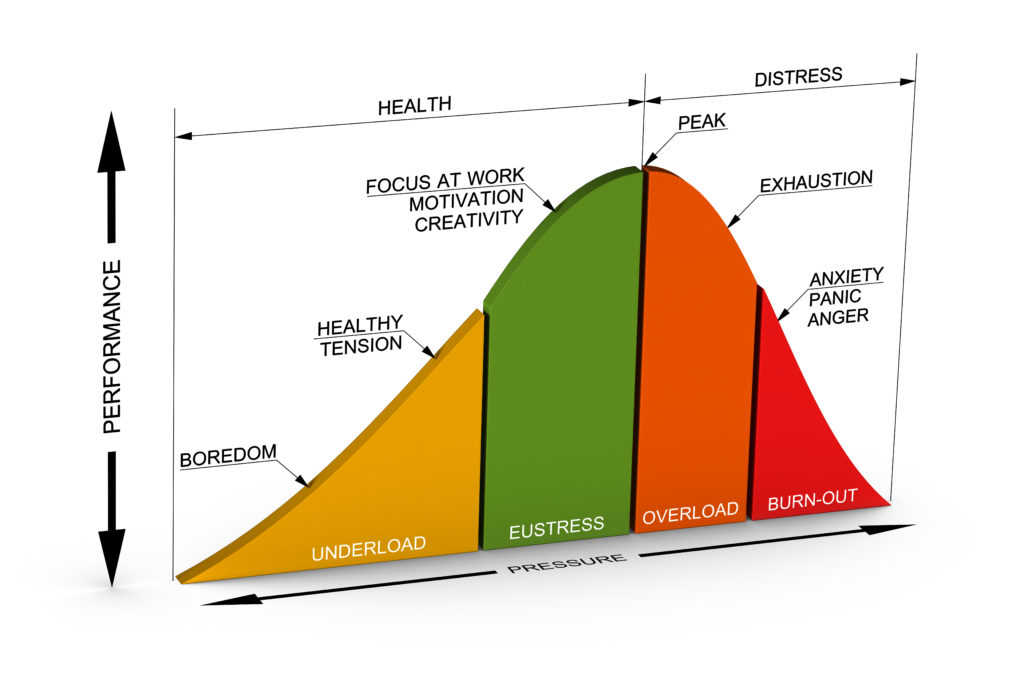Stress is good for you.
The right kind of stress.
Until the industrial age, there was practically zero conversation about work-related stress. Work was work. It was hard and necessary. Around the boom of the welfare state, our downtime increased. People started to have extra time and money to allocate to other, non-work activities. It also coincides with the first conversations around stress.
In 1956, Hans Selye, a Canadian endocrinologist, wrote "The Stress of Life." The book is considered a classic in stress research. It was one of the first to introduce the concept of "stress." Selye defined "stress" as the non-specific response of the body to any demand, whether it be physical, psychological, or emotional.
Selye describes his research on the effects of stress on the body, including the role of the adrenal glands in responding to stress. The impact of stress on the immune system and the link between stress and disease. He also discussed the concept of "adaptation energy," which he believed was a limited resource that the body used to cope with stress.
The World Health Organization (WHO) recognized stress as a major health concern in the 1970s. Since then, numerous studies have been conducted on the causes and effects of work-related stress.
However, what is much lesser known is that almost 20 years later, Selye clarified stress into two new categories: eustress and distress. Eustress pulls from the Greek prefix of eu- (meaning good). Thus we get "good stress" as opposed to distress or "bad stress." Selye showed not all reactions to stressors are adverse; in fact, he argued that living in eustress promotes growth.
Eustress is the stress we experience when we are challenged or motivated by a goal or opportunity, and it has several benefits:
- Increased motivation and productivity.
- Improved mental and physical health.
- Increased creativity and problem-solving.
- Improved resilience.
- Better overall well-being.
It's also important to note the eustress can turn into distress if a balance isn't held. Staying in eustress is an art more than a science, and each of us has a different threshold to what constitutes eustress.

3D illustration, Business or Marketing concept. Composite between a photography and a 3D background. Man turning the mobile network selector button to the next 5G generation. Telecommunication standards concept. Composite image between a hand photography and a 3D background.
Apply these questions to any particular stress you are feeling. If it checks these boxes, it's eustress.
- Is it voluntary? Eustress is typically voluntary in that it arises from activities or events we choose to engage in.
- Is it short-term?: It generally is short-term, in that it arises from a specific event or activity and dissipates once it is over.
- Does it feel good? It is often accompanied by feelings of excitement, pleasure, or satisfaction.
- Is your performance enhanced? Eustress can improve performance and motivation by providing a sense of challenge or opportunity.
- Do you perceive it as controllable? Feeling we have some degree of control over the situation or event causing the stress is important because we have the agency to end the stress.
- Does it motivate you? Typically it's a powerful motivator, pushing individuals to achieve their goals and aspirations.
- Is it building resilience? Eustress can help to build resilience by providing a sense of accomplishment and mastery over stressors.
- Is it pushing you, but still within your abilities? Stress that is outside of our abilities becomes distress.
Peak eustress is also associated with entering a "flow state." It's the state where we feel intense clarity and focus. Where decisions are made swiftly, it's almost surreal. Flow state is tied to the work of Mihaly Csikszentmihalyi, and his belief that in flow, we find happiness. Flow state is synonymous with eustress.
There is a shadow side to applying the concept of eustress in a business setting. Companies lacking employee feedback systems are unable to monitor how workers respond and adjust to changing stress conditions. Stacking up workloads does not equate to cultivating eustress in an organization. Therefore, in the hope of applying the "right" amount of pressure on a team, managers will occasionally push team members into distress.
A simple exercise I recommend includes listing out everything that is "stressing you out." Grab a sheet of lined paper and draw out three columns. On the left column, list out all your current stressors. Title the middle column "eustress" and the right column "distress." Now go down each of the stressors and ask yourself, "do I, or can I find a flow-state in this stressor if it's adjusted in some way?" If so, place a check in the middle column. If the answer is no, then drop a checkbox in the right column.
The next step is to speak to whomever you need to adjust the stressor. Secondly, take a good look at the list of distress. Do you want to continue doing these things? Can you get training or support to better deal with the distresses?
We want to grow. Distress does not equal growth. If you find yourself distressed, I suggest you take a hard look at your life and make some changes. Life is too short and precious to live in distress. Eustress is where the growth it, there you'll find fulfillment.

